I have been searching for a while in the internet yet cant find what i really needed. My problem is that I have two linq statements which I am planning to have them in UNION so that they'll be mergen into 1 single set of list but I want to removed those duplicate values. To be specific here is the a scenario:
query 1 = "this is a test","Yes", "This is a remark"
"this is a test2","No", "This is the second remark"
query 2 = "this is a test","",""
"this is a test2","",""
"this is a test3","",""
"this is a test4","",""
now what I want to happen is something like this:
"this is a test","Yes", "This is a remark"
"this is a test2","No", "This is the second remark",
"this is a test3","",""
"this is a test4","",""
How can I do this in LINQ?thanks in advance!
